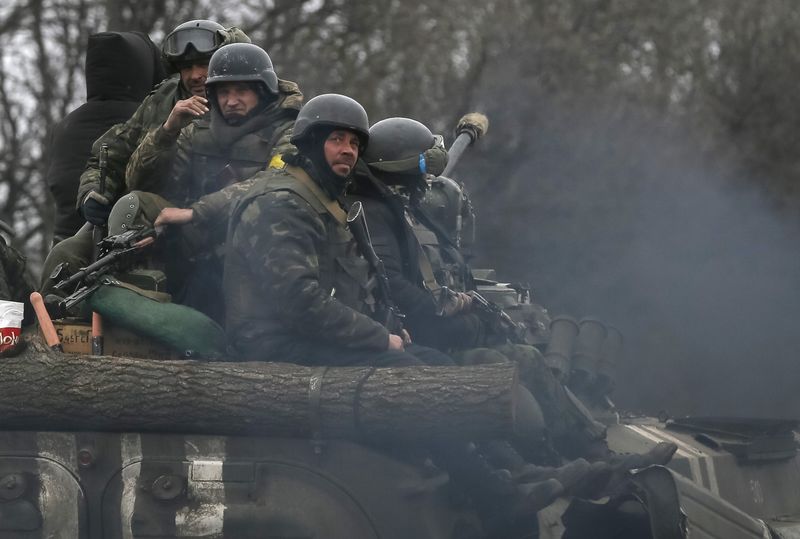TOKYO (Reuters) - No normalization of ties between Ukraine and Russia is likely unless the region of Crimea, now under Russian control, is returned to Kiev's sovereignty, Ukrainian Foreign Minister Pavlo Klimkin said on Tuesday.
Klimkin, on the second day of his two-day trip to Japan, also said the border between Ukraine and Russia needed to be completely closed to achieve any settlement to the armed conflict between Kiev and pro-Russian separatists in eastern Ukraine.
He reiterated his government's stance as a ceasefire deal, reached last month in Minsk, is broadly holding on the front line, but fighters in the separatist stronghold of Donetsk are training for another round of clashes against government troops.
"There could be no slightest way of normalizing or getting back to business in the relations between Ukraine and Russia without returning to status quo and establishing full Ukrainian sovereignty over Crimea," Klimkin told reporters in Tokyo.
Russia annexed the Black Sea peninsula of Crimea from Ukraine a year ago.
"The ultimate precondition for any effective, final settlement is to fully close down the Ukrainian-Russian border," he said.
"Because everything that has been destabilizing the situation in (the Ukrainian cities of) Donetsk and Lugansk - mercenaries, money, weapons, heavy weaponry, and of course Russian rebel troops - came through the Russian-Ukrainian border."
Ukraine and Western governments have accused Russia of sending troops and weapons to support separatists in eastern Ukraine, despite the peace deal agreed on Feb. 12. Moscow has denied this.
"We stress from the very beginning that we've been striving for a peaceful solution. But we will use any means for defending Ukraine's territorial integrity and sovereignty," Klimkin said.

U.S. Secretary of State John Kerry told Russian Foreign Minister Sergei Lavrov on Monday that Moscow and pro-Russian separatists in Ukraine must implement the ceasefire or face "consequences" that could further hit Russia's faltering economy.